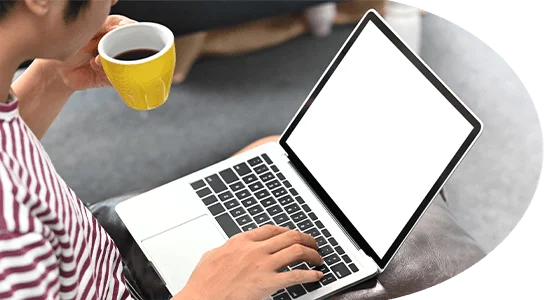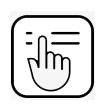
Signs of Impulse Control Disorders may include:
Compulsive lying
Poor social skills
Sudden explosive anger or acts of violence
Hair pulling
Participating in risky sexual behaviors
Stealing
Isolating oneself from family and friends and others

Counseling for Oppositional defiant disorder
Oppositional defiant disorder (ODD) is a common behavior disorder in children. Those suffering from this condition have difficulty controlling their emotions or behaviors. This disorder affects approximately 2-11% of children in the United States, and it is more common in preadolescent males than females.
People with ODD typically experience symptoms between the ages of 5 and 10, and symptoms may fade as they get older.

Counseling for Intermittent Explosive Disorder
IED stands for Intermittent Explosive Disorder.
Intermittent explosive disorder (IED) is most common in late childhood or adolescence. People with this condition experience brief bursts of rage and aggression that appear to be out of proportion to the trigger. Anyone other than the person with IED may not notice the cause.

Counseling for Conduct Disorder
Conduct disorder (CD) is a type of impulse control disorder that typically manifests itself during childhood or adolescence.
Reliable Source. This condition causes people to be rebellious, disobedient, and aggressive.
This disorder affects approximately 2-10% of children and adolescents in the United States, and it is more common in males than females. This condition is also associated with an increased risk of attention deficit hyperactivity disorder (ADHD), mood disorders, and developmental disorders.

Counseling for Kleptomania
Kleptomaniacs have an urge to take possessions that do not belong to themTrusted Source. The condition can strike at any age and is more likely to strike women than men.
Find Your Impulse Control Disorders Counselor Nearby
Counseling for Pyromania
Pyromania is an uncommon impulse control disorder in which people become obsessed with fire and all things related to fire. They frequently have a strong desire to set things on fire. Pyromania is more common in teenagers and adults, and males are more likely than females to suffer from it.
People who suffer from pyromania are more likely to suffer from mood disorders and learning disabilities.
It is a mild form of autism that manifests a variety of symptoms. The most common symptoms are difficulties with social and linguistic development.
Holistic care from our team of experts. The support and guidance you need for your struggle with Impulse Control Disorder is here.


855-722-4422

“Healing doesn't mean the damage never existed. It means that the damage no longer controls your life.”

- Akshay Dubey
We aim to create an inclusive space for you to talk and find the right support system.

Find A Counselor

Check Your Insurance

Book Your Online/In-person Counseling Session

Meet your therapist in-person who works to provide holistic care and customized treatment plans that suit your unique needs.
Delve into virtual therapy for your impulse control issues from the comfort of your home. Our therapists provide holistic support for overcoming the disorder and facilitate healing.
Find Your Counselor
Our Therapists | Insurance Coverage | Services Offered | Privacy
Our online impulse control treatment counseling sessions are all conducted by our counselors in private spaces, and our video platform is contained within our HIPAA-compliant Electronic Health Records system, so your face, voice, and data are always private and protected.
We accept major commercial insurance plans and offer low self-pay rates, which may vary slightly by geography and therapist licensure.
To address impulse control issues, various counseling techniques can be employed, including:
Symptoms and signs of impulsive disorder:
Kleptomania and Intermittent Explosive Disorder are two examples of impulse control disorders. Kleptomania is a condition where an individual feels a strong urge to steal items that are not necessary or valuable, and they may experience feelings of guilt or shame after the act. Intermittent explosive disorder is characterized by sudden outbursts of impulsive aggression, which can include physical or verbal aggression towards people or objects, often resulting in harm or damage.
A coping skill that can help with impulsivity is practicing mindfulness. Mindfulness involves being present in the moment without judgment and can help individuals become more aware of their thoughts, feelings, and physical sensations at the time. With regular mindfulness practice, individuals can learn to recognize their impulsive behavior disorder and develop effective strategies for managing impulse control in a healthy and positive way.
The goal of counseling for impulse control disorders is to assist impulsive behavior in teens in managing their impulsive urges and developing healthier coping skills. The specific goals of counseling for impulsivity in teens may vary based on an individual's specific needs and situation, but generally, it aims to help them identify the triggers for childhood impulse control disorder, develop strategies for managing impulses, and build self-awareness and emotional regulation skills. The ultimate objective is to help individuals with teenage impulsive behaviour lead a more fulfilling life and decrease the negative effects of impulsivity on their relationships, career, and overall well-being.
Lifebulb counselors and therapists are specialized in providing in-person or online therapy, counseling, care, and depression treatment for a wide variety of mental healthcare needs.
Do a local Google search, and you will have a long list of options, whether you are searching for ‘Impulse Control Disorders Counseling,’ ‘impulse control treatment,’ ‘impulsive behavior treatment,’ ‘impulse control counselor’ or ‘impulse control disorder treatment’. If you want to meet with the counselor face-to-face before your session, consider going for offline impulse disorders counseling.
We accept major commercial insurance plans and offer low self-pay rates, which may vary slightly by geography and therapist licensure.
We use a HIPAA-compliant video counseling service integrated into our Electronic Health Records System to provide a smooth process for our clients to engage in online therapy and counseling sessions. Booking a session with us is easy. Simply call our office or request a specific session time from our website, and a team member can book you with the best possible fit as a therapist or confirm your online session details. We'll review insurance information and a few simple policies and email you a confirmation of your session date and time, whether in-person or virtual therapy.
Therapy or Counseling are often a long-term process that can help in improving overall mental health. It has been demonstrated that therapy and counseling can enhance feelings and behaviors and is associated with healthy adjustments to the brain and body. There is never a guaranteed "cure," but counseling helps make positive lifestyle changes and teenage impulsivity.
Look over our expansive list of carefully curated resources to learn about the Impulse Control Disorder